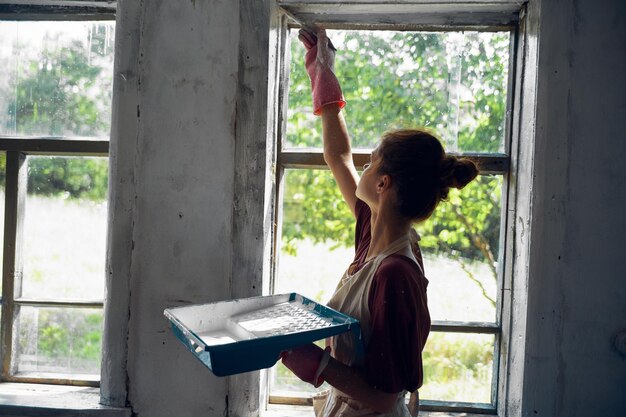Are Energy-Efficient Windows Worth Your Investment? Discover Everything You Need to Know!
In today's eco-conscious world, homeowners are constantly seeking ways to reduce energy consumption, lower utility bills, and minimize carbon footprints. One solution that's gaining popularity is energy-efficient windows. But what exactly are they, how do they work, and are they worth the investment? Let's dive into this topic and provide a comprehensive guide to understanding energy-efficient windows.
What Are Energy-Efficient Windows?
Energy-efficient windows are designed to prevent your heating and cooling from escaping your home, effectively reducing your HVAC system's workload. These windows use advanced materials and technologies to improve thermal insulation, minimize air leakage, and control solar heat gain.
Key Features of Energy-Efficient Windows
Low-E Glass: This stands for low-emissivity glass, which has a microscopically thin coating that reflects heat while allowing light to pass through. This helps keep your home warm in the winter and cool in the summer.
Multiple Panes: Dual or triple-pane windows are common in energy-efficient designs. The space between the panes is often filled with inert gases like argon or krypton, which provide better insulation than air.
Warm Edge Spacers: These components separate the glass panes and improve thermal performance by reducing heat transfer around the edge of the glass.
Quality Frame Materials: Frames made from materials such as vinyl, fiberglass, or wood composites, which offer better insulation than standard aluminum frames.
Improved Weatherstripping: Enhances the window's ability to seal out drafts and maintain indoor temperatures.
Are Energy-Efficient Windows Worth the Cost?
Investing in energy-efficient windows can seem costly at first glance, but several factors can help determine if they are financially worthwhile.
Financial Benefits: The Case for Energy Savings
Reduced Energy Bills: By improving your home's insulation, energy-efficient windows can significantly decrease the cost of heating and cooling, potentially saving you hundreds of dollars annually.
Increased Home Value: These windows are an attractive feature for homebuyers, which could potentially increase your property's resale value.
Tax Incentives and Rebates: Depending on your location, you may be eligible for government rebates or tax credits, which can offset the initial investment.
Environmental Impact
Energy-efficient windows aren't just beneficial for your wallet; they’re also better for the environment by reducing overall energy consumption and the associated greenhouse gas emissions.
Selecting the Right Windows for Your Home
Choosing the right energy-efficient windows involves more than just opting for the highest technology. Here’s a guide to help tailor your selection:
Consider Your Climate
Different climates require different considerations:
- Cold Climates: Focus on windows with high insulation capacity, such as triple-pane windows and those with high R-values.
- Warm Climates: Opt for windows with low solar heat gain coefficient (SHGC) to reflect heat and reduce cooling costs.
Evaluating Window Ratings
Understanding window ratings can help you choose the best option for your needs. Key ratings include:
- U-Factor: Measures how well a window prevents heat from escaping. Lower values indicate better insulating properties.
- SHGC: Indicates how well a window controls solar heat entry. Lower numbers are better for hot climates.
- Visible Transmittance (VT): Represents the amount of light that passes through a window. Higher values mean more daylight but could also imply greater heat entry.
Installation: Getting It Right
Once you've chosen your windows, proper installation is crucial to ensure they perform as expected. Improper installation can lead to air leaks, reducing the efficiency of the windows no matter how high-tech they are.
Tips for Successful Installation
Hire a professional: Consider hiring experienced professionals to install your windows to guarantee they are fitted correctly and securely.
Ensure proper sealing: Confirm that all windows have proper seals to avoid air leaks which can counteract energy-saving benefits.
Check local building codes: Ensure your new installation complies with local building requirements and standards for energy efficiency.
Common Misconceptions About Energy-Efficient Windows
They Are All the Same
Not all energy-efficient windows are created equal. The efficiency varies with the quality of materials, construction, and the type of technology used.
They Are Only Useful in Cold Climates
Energy-efficient windows provide benefits across all climate zones by reducing cooling needs in hot climates as well.
They Require Constant Maintenance
While all windows need some level of care, energy-efficient windows are no more demanding than traditional ones and may even require less attention due to their higher-quality components.
Quick Takeaways 📋
- Reduce Costs: Energy-efficient windows can lower utility bills significantly.
- Eco-Friendly: Reduce your carbon footprint by installing these windows.
- Increase Home Value: They are a marketable feature when selling your home.
- Customized Solutions: Consider climate-specific needs for optimal results.
- Professional Installation: Essential for maximizing benefits and longevity.
Final Insight
The decision to invest in energy-efficient windows should be based on a comprehensive evaluation of their cost benefits, environmental impact, and personal home improvement goals. While the upfront cost may be substantial, the long-term savings on energy bills, tax incentives, and enhanced home comfort often justify the investment. Moreover, contributing to a sustainable lifestyle by minimizing energy consumption can have far-reaching positive effects. Whether you're building a new home or looking to upgrade, energy-efficient windows offer a robust and eco-friendly solution for modern living.

